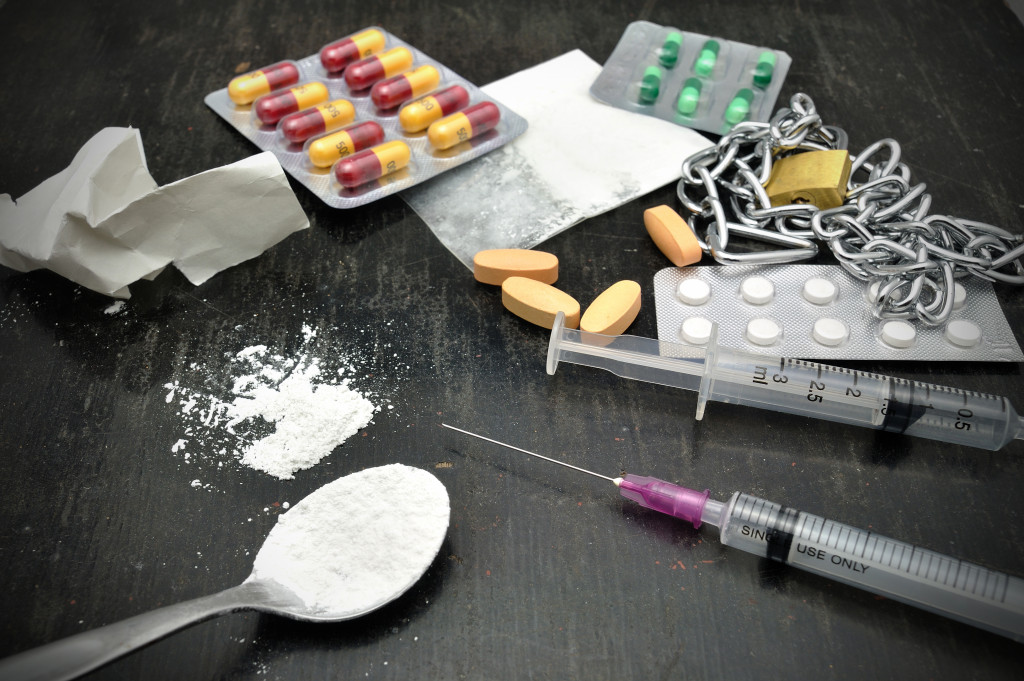- Substance abuse can have severe and long-lasting effects on individuals’ health, safety, and well-being.
- Substance abuse patients may experience legal, health, financial, and social issues.
- Seek professional help for treatment and support to find the best approach for recovery.
- Develop healthy coping strategies such as mindfulness or meditation to manage stress and cravings.
- Avoiding relapse by identifying triggers and having positive outlets can help prevent substance abuse.
Substance abuse can have severe and long-lasting effects on individuals’ health, safety, and well-being. People who struggle with addiction may experience physical, mental, and emotional problems that can drastically impact their quality of life and the lives of those around them.
Troubles of Substance Abuse
Substance abuse is often linked to a wide range of negative consequences that can include:
Legal troubles
Those suffering from substance abuse may find themselves dealing with criminal charges related to their use or possession of drugs. Additionally, they may face other legal problems, such as being denied employment or housing due to a criminal record.
Health issues
Substance abusers are at risk for developing various physical health problems caused by long-term drug use. These conditions can range from respiratory diseases to heart disease, stroke, cancer, and other serious issues caused by smoking or drinking. Additionally, many substances can lead to mental health issues such as depression or anxiety.
Financial concerns
The cost associated with substance abuse can quickly add up due to purchasing drugs or alcohol and medical expenses incurred due to the resulting health issues. Additionally, the person may be unable to work due to their addiction, leading them into debt or bankruptcy in some cases.
Social impact
Those struggling with addiction often distance themselves from family and friends to hide their problems. This can lead to strained relationships and an increased risk of developing further mental health issues such as loneliness or low self-esteem. Substance abusers may also face social stigma, which could further complicate matters by limiting access to resources like healthcare, housing opportunities, and services designed for those experiencing addiction.
Statistics show that substance abuse is a growing problem in the United States – it is estimated that over 20 million people have a substance use disorder, according to data from the National Institute on Drug Abuse (NIDA).
The Paths to Substance Abuse Recovery

Anyone struggling with substance abuse should seek professional help to find the proper treatment and support. Here are some tips for those facing addiction:
Find a Treatment Program
It is essential to find an appropriate treatment program that works for you, whether inpatient or outpatient. Look for one specializing in helping individuals dealing with substance abuse so they can get the most comprehensive care. You can also find a reputable rehabilitation center if you want to ensure recovery in privacy.
Reach Out for Support
It is essential to have social support when overcoming addiction. Reach out to family and friends who can provide emotional and practical help as you recover. Additionally, consider joining a support group or therapy sessions designed specifically for those suffering from addiction.
Develop Healthy Coping Strategies
Look for ways to manage stress and develop healthier coping strategies. This could include engaging in activities like yoga, mindfulness, or meditation. Having a plan for when cravings arise can also help you stay on track with your recovery goals.
Of course, those strategies do not automatically mean success in overcoming substance abuse. It is essential to stay proactive and continuously seek help if needed. Remember that recovery takes time and patience, but it is possible with the proper support and attitude.
The journey of overcoming addiction can be difficult, but it is not impossible. Seek professional assistance from qualified professionals as soon as possible for the best chance at successful recovery from substance abuse. You can improve your physical, mental, and emotional health with proper treatment while staying on the path to a healthier future.
Avoiding Relapse

You might be experiencing a lot of temptation along the road to recovery. To prevent relapse, it is essential to recognize potential triggers and plan for when they come up.
For some people, specific environments or situations might trigger cravings that could lead to relapse. It can be beneficial to talk about this with a therapist or support group so you can find ways to manage these scenarios more effectively.
Additionally, having healthy outlets for stress, such as exercise, meditation, or other self-care forms, can help reduce the risk of substance abuse. Find activities that provide positive reinforcement and distraction from negative thoughts and behaviors associated with addiction.
Final Thoughts
Substance abuse is a serious issue that should not be taken lightly. Seek help as soon as possible to begin recovery and get back on track to living a healthier, happier life. Take advantage of resources like treatment programs and support groups to find the best approach for your recovery journey. With consistency and dedication, it is possible to overcome substance abuse for good.
By recognizing symptoms and taking steps toward recovery, those struggling with addiction can start making positive changes. Seeking help from professionals and loved ones can make all the difference in achieving sustained sobriety. Remember: You are not alone on this path – there is hope, and you must take that first step!

